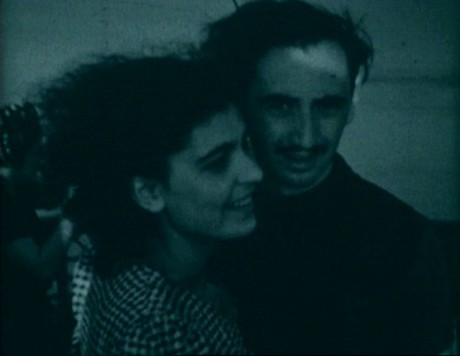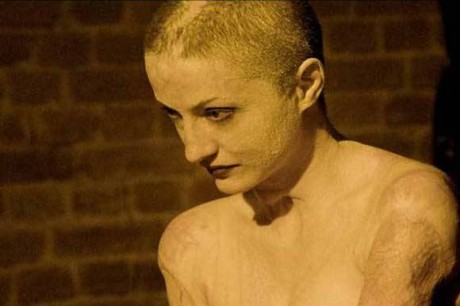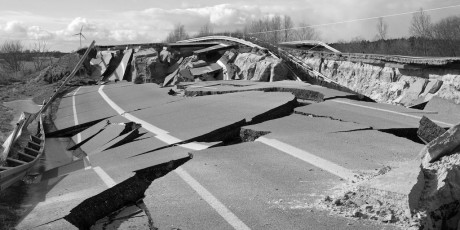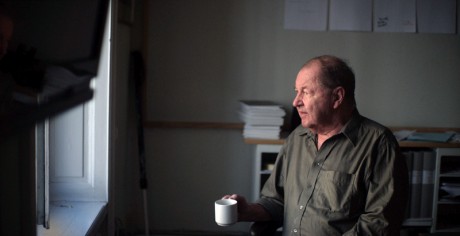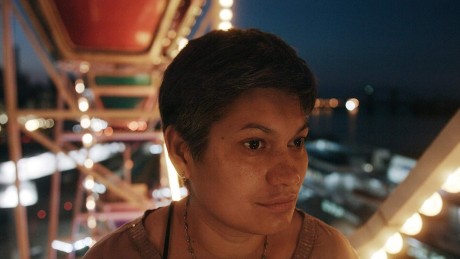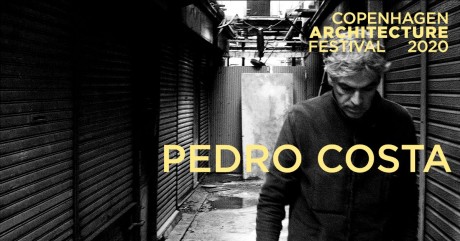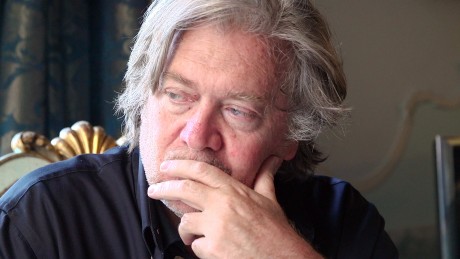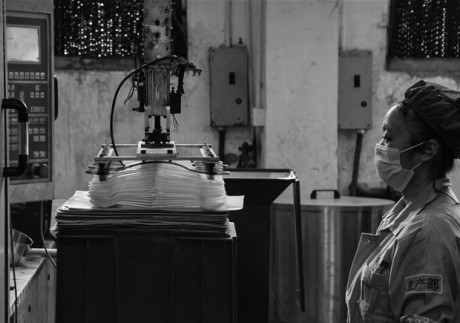Alyson Klayman: The Brink
Errol Morris goes to Venice with “American Dharma” – no description but the fact that Steve Bannon (!!!) is the character. Very actual, indeed. (Tue Steen Müller, på Filmkommentaren, 2018)
“The Brink”, a very much talked about documentary with Steve Bannon as protagonist, “Is Steve Bannon a dangerous demagogue, a brilliant strategist or a megalomaniac loser? The American filmmaker Alison Klayman leaves it up to us to make the judgement…”. The New Right is the theme of the Talk. (Debatten efter visningen på Docs & Talks) (Tue Steen Müller, på Filmkommentaren, 2020)
Jeg så filmen med fornøjelse, optaget og uden sidespring, blev i dens verden. The Brink er underholdende og har fremdrift noterer jeg uden jeg er spor imponeret over dens research, instruktion og klipning som vist er ok, jeg fæstner mig ikke ved det. Det er i ét og alt Steve Bannons indsats som medvirkende som jeg – i dyb afstandtagen fra hans synspunkter og hans arbejde forankret i dem – altså trods dette i én og en halv time har som min helt, min filmhelt som jeg holder med inde i filmens verden, der lukker den virkelige verden ude, den verden som journalistikken i filmen vist nok tager sig af, den del som vil interessere den efterfølgende debat i Docs & Talks, som man sådan skal glæde sig til.
Når jeg om lidt læser anmeldelser og omtaler af The Brink vil jeg selvfølgelig finde en optagethed af verdenen uden for filmens verden, først og fremmest af Bannons biografi, hans politiske synspunkter, hans forsøg på at samle højrekræfterne i Europa, men nok ikke en optagethed af Bannons uafbrudte tilstedeværelse som fascinerende og kraftfuld person i samtalerne og ved møderne hans scenebeherskelse, alt sammen det som for mig peger hen mod filmfortællingens kerne, som jeg ikke helt stramt kan indkredse, men som er en koncentration af charme, intelligens og evne til at fremstille sin analyse og sin vision, som er at samle de partier som henvender sig til de miserable som han kalder denne store gruppe vælgere i USA over Frankrig, Italien, Tyskland. Og til Polen og Ungarn hvor de er grundlag for højreregeringerne.
Men hvordan kan jeg dog svigte min erfaring og alt det jeg dog ved og min moral i mit liv uden for filmen ude i den virkelige virkelighed?
Jeg tror det sker ved forførelse. Det er alligevel filmens konstruktion, især Alyson Klaymans journalistiske valg af en filmkunsnerisk fremstilling som er årsagen. Det er derfor hun giver sit arbejde, sit værk titlen The Brink – om lidt hænger Steve Brannon med hænderne alene i klintens kant. Hvor stærk er han i virkelighederne??
Alyson Klayman: The Brink, USA 2019, 92 min. Vises på festivalen Docs & Talks 5. febuar 16:30
SYNOPSIS
A fly-on-the-wall chronicle of embattled former White House chief strategist Steve Bannon’s global mission to spread extreme nationalism. When Steve Bannon left his position as White House chief strategist less than a week after the Charlottesville “Unite the Right” rally in August 2017, he was already a notorious figure in Trump’s inner circle, and for bringing a far-right ideology into the highest echelons of American politics. Unconstrained by an official post — though some say he still has a direct line to the White House — he became free to peddle influence as a perceived kingmaker, turning his controversial brand of nationalism into a global movement. The Brink follows Bannon through the 2018 mid-term elections in the United States, shedding light on his efforts to mobilise and unify far-right parties in order to win seats in the May 2019 European Parliamentary elections. To maintain his power and influence, the former Goldman Sachs banker and media investor reinvents himself — as he has many times before — this time as the self-appointed leader of a global populist movement. Keen manipulator of the press and gifted self-promoter, Bannon continues to draw headlines and protests wherever he goes, feeding the powerful myth on which his survival relies.
TRAILER
https://www.youtube.com/watch?v=FjfUPLEKZtI
TALKS
Is Steve Bannon a dangerous demagogue, a brilliant strategist or a megalomaniac loser? The American filmmaker Alison Klayman leaves it up to us to make the judgement. In the fall of 2017, she was granted exceptional access to follow the controversial media executive and former political adviser Steve Bannon up close during the year that followed his exit from the Trump administration. Having played an important role in the media’s influence on American politics, Bannon is now seeking new territory: Europe. His mission is to create a global ideological movement and – in alliance with European populists – fight migration and the European Union.



